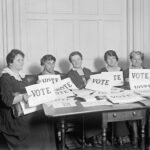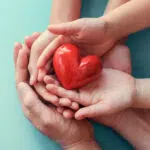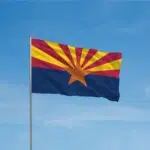Have a Heart Day is observed on February 14. It’s an annual event organized by the First Nations Child & Family Caring Society of Canada. Activists, organizers, and community members march to the parliament to raise their voices against the discrimination and marginalization faced by the Indigenous people of Canada. The day is based on the ethos of reconciliation and the role individuals should play in demanding institutional change from the government. National Have a Heart Day is about organizing a movement that creates sustainable change in the lives of First Nations children and fills it with respect, love, and equal opportunities.
History of Have a Heart Day
Have a Heart Day is part of the larger movement run by the First Nations Child and family services of Canada. Ever since its inception in 1998, the organization has worked to bring awareness to the discrimination faced by Aboriginal children. It also connects the families of victims with resources and support. The essence of the day is based on reconciliation and individual action. The central effort is to build a bridge between communities, as we address the hardships faced by Aboriginal families.
Aboriginal families deserve a fair chance at life, just as the rest of us. But the children of ‘First Nation’ (a term used to identify Indigenous peoples of Canada who are neither Métis nor Inuit) are being pushed into a life of crime and punishment. Aboriginal people make up 3.8% of the Canadian population, yet somehow, they account for 23% of Canada’s incarcerated population.
In recent years, the expanded efforts of the National Have a Heart Day Campaign has secured massive wins for the Indigenous people of Canada. The organization was able to secure $40,000 in fines for the wilful and reckless negligence of First Nations children and their families. The Reconciling History Initiative has also launched new learning opportunities to include more people in the process of ensuring justice for the Indigenous communities.
The day has been marked by many protests in the last decades. Legions of Canadians have marched to the marble floor of the parliament to demand justice and restoration for their aboriginal neighbors.
Have a Heart Day timeline
First Nations Child and Family Caring Society of Canada is established after years of activism toward the cause.
The interim board is elected and the vision and mission of the non-profit are made public.
Canadian Prime Minister Stephen Harper acknowledges the offenses against Indigenous children for the first time.
Canadian Human Rights Tribunal declares discrimination levied by the Government of Canada against 163,000 First Nations Children.
Have a Heart Day FAQs
How can we support the Indigenous communities of Canada?
Indigenous communities are subjected to horrifying discrimination and marginalization. You can support them by donating money and resources to verified organizations, raising awareness about their debilitating conditions, and rallying for their cause in the parliament.
How do you address Indigenous people in Canada?
Refrain from deflecting ownership upon the Indigenous people with phrases like ‘Canada’s Indigenous people.’ Capitalize the words Indigenous, Aboriginal, Inuit, Métis, and First Nation as a sign of recognition of their status. Also, refer to them by their first name after establishing familiarity.
How many Aboriginal groups are there in Canada?
The Canadian constitution defines three groups as Aboriginal — First Nations (North American Indian), Métis, and Inuk (Inuit). Informally, there are over 600 First Nation groups or bands in Canada, practicing over 60 languages.
How to Observe Have a Heart Day
Share methods of reconciliation
Empathy, understanding, and communication are all methods of reconciliation that heal our divisions. National Have a Heart Day is a special occasion for non-Aboriginal people to extend a helping hand to our aboriginal neighbors and express solidarity with them.
Donate to Indigenous organizations
The best way to offer practical help to Indigenous people is by promoting their fundraisers and making regular contributions to charities like the First Nations Child and Family Caring Society of Canada and the Indian Residential School Survivors Society.
Rally for Indigenous rights in the government
The 2007 tribunal ruling and the subsequent Acknowledgement by the Canadian Prime Minister has opened tremendous doors for Aboriginal rights. On February 14, join the Indigenous people in their fight for full enfranchisement by writing a letter of agreement to your member of parliament.
5 Grim Facts About Canada’s Indigenous Community
A sip of poison
Over 20% of First Nation communities have not had access to safe and fresh drinking water for the last 25 years.
The cost of education
Up until the early 1990s, residential schools in Canada used to indoctrinate Aboriginal children with western values.
The haunting of the past
The distrust of education still haunts the First Nation Communities, 40 of which have no schools or academic centers.
Jail before a job
A First Nation student is more likely to end up in jail than to graduate from college.
The suicide alarm
First Nation youth are seven times more likely to commit suicide than non-Aboriginal youth of the same age.
Why Have a Heart Day is Important
It’s a focus on individual action
National Have a Heart Day is based on the effort of reconciliation. While we rally for institutional change, we must also focus on the power of individual action. By raising our voices and extending our hands, all of us can make a difference.
It’s an appeal to heal
The day raises resources to help the children of aboriginal people get a good education, nutritious food, and secure life. It is believed that through material help and the transfer of wealth, we have a chance to heal our wounds and come together as one nation.
Hope for change
Tremendous progress has been made since the 2016 landmark ruling in the favor of Aboriginal rights. Over 691,000 products and services have been designated to First Nation families since the non-compliance order of May 2017. As we fight for change, February 14 is a great day to sit back and reflect on the progress we have made.
Have a Heart Day dates
| Year | Date | Day |
|---|---|---|
| 2025 | February 14 | Friday |
| 2026 | February 14 | Saturday |
| 2027 | February 14 | Sunday |
| 2028 | February 14 | Monday |
| 2029 | February 14 | Wednesday |





































